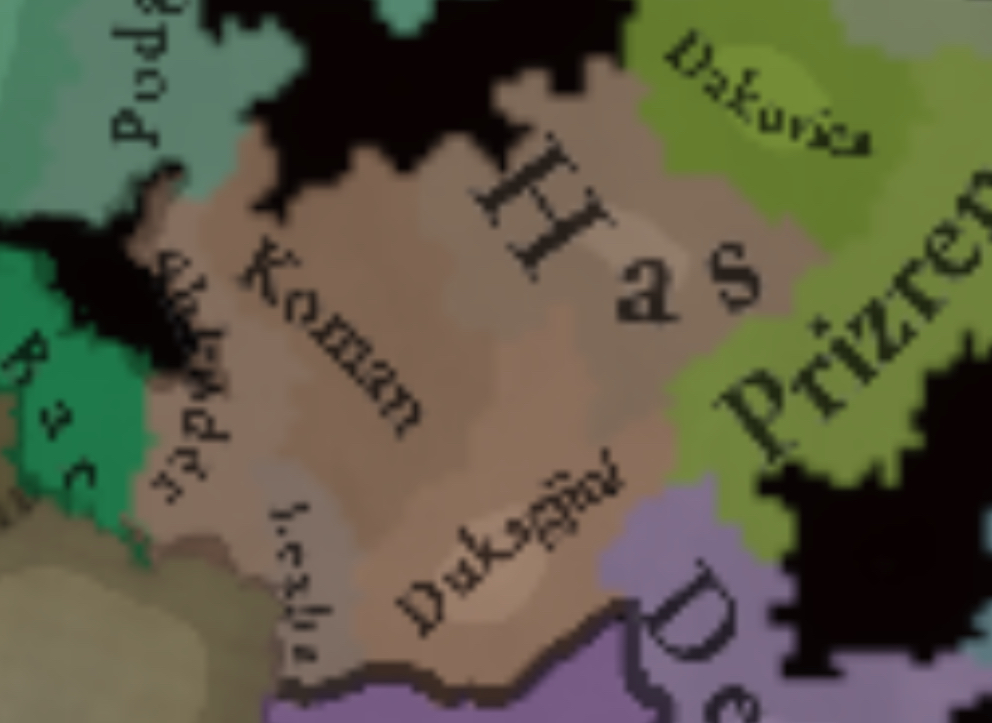Allow me to extend a research into the matter of why northern provinces were autonomus at some extend and why does it need a little change;
View attachment 1264297
Duśan control over northern part of Albania was never absolute as shown in the map. Instead of Serbia fully owning the province, Dukagjin, Has, Komman, Lezhe, Shkoder could be tributary states, meaning they pay tribute but arent directly governed or could be autonomous entity under limited influence. Albanian chieftains were never fully subdued, and historical sources confirm this autonomy. A tributary status to some northern regions including Dukagjin, will reflect diplomatic flexibility is a better way to represent this in game.That way, we keep it both historically accurate and in line with game mechanics.
Historical research shows that Stefan Dušans expansion into Albania was largely a military assertion rather than deep administrative control.
John V. A. Fine, in The Late Medieval Balkans, explains that Serbian influence was limited in North Albania, with local Albanian chieftains like those in Dukagjin retaining substantial autonomy.
View attachment 1264298
Similarly, Peter Bartl points out that while Serbias military campaigns reached into Albanian lands, the administrative integration never took hold. Oliver Jens Schmitts work on regional power dynamics further illustrates that even when Dušan claimed these areas, real control was minimal, as local rulers maintained significant diplomatic leverage. Noel Malcolm also emphasizes that after Dušan’s death, any semblance of Serbian control evaporated quickly, underscoring the temporary nature of that influence.
***
Translating this into game mechanics means that the Dukagjin, Has, Koman, Lezhe and Shkoder province have a tributary status such or an autonomous province with some extend of influence. It would still be under Serbian suzerainty considering the time period, paying tribute or following certain diplomatic ties but local rulers would have enough independence to potentially break away or shift alliances as conditions change. This dynamic setup will reflect some historical realities but also adds some strategic depth, while allowing the players to choose Albania and unify the provinces under Skanderbeg not much later on.








